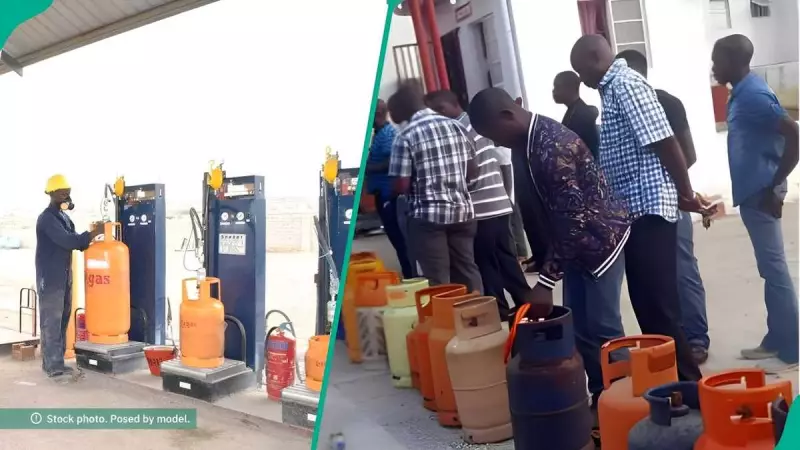
Nigerians are grappling with a severe cooking gas crisis that has sent prices soaring and left many households struggling to afford this essential commodity. The situation has reached critical levels in major urban centers across the country, with consumers facing unprecedented challenges in accessing liquefied petroleum gas (LPG).
Supply Chain Breakdown Triggers Panic
The root of the current crisis lies in significant supply chain disruptions that have created a domino effect throughout the distribution network. Depot owners have reportedly increased prices dramatically, citing various operational challenges that have hampered their ability to maintain consistent supply.
Price Surge Hits Household Budgets
Market investigations reveal that the cost of refilling a 12.5kg gas cylinder has jumped to alarming levels, with many retailers now charging between ₦18,000 and ₦20,000 in various locations. This represents a massive increase from previous rates, putting tremendous pressure on family budgets already strained by rising inflation.
Multiple Factors Behind the Crisis
Industry experts point to several contributing factors:
- Logistical challenges in gas transportation
- Increased operational costs for depot operators
- Foreign exchange fluctuations affecting import costs
- Infrastructure limitations in the distribution network
Consumers Forced to Seek Alternatives
The scarcity has forced many Nigerians to return to traditional cooking methods using firewood and charcoal, raising concerns about environmental impact and health hazards from indoor air pollution. Small businesses, particularly those in the food service industry, are also feeling the pinch as their operational costs skyrocket.
Government Response Awaited
Stakeholders are calling for urgent government intervention to address the supply gaps and stabilize prices. There are growing demands for temporary subsidies or price controls to provide relief to struggling consumers while long-term solutions are developed.
The situation remains fluid, with industry observers warning that the crisis may worsen in the coming weeks if immediate measures aren't taken to resolve the supply chain issues and address the root causes of the price increases.





